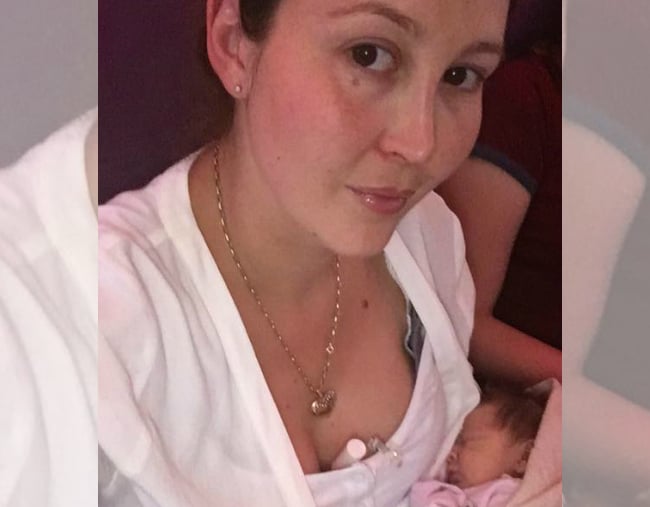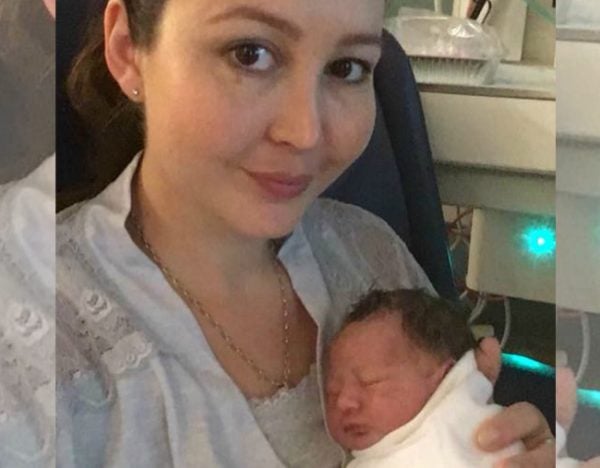
This post was written by Aria Nichols and has been republished from Quora with permission.
Warning: This post describes a woman’s story of newborn death.
In December 2016 I left the hospital with my two-week-old daughter, Lamees, and boarded a 17-hour flight knowing that she might die in my arms.
I was terrified, but I had vowed to sit quietly and not say a word until we landed, even if that meant holding her as she grew cold.
I had approximately 24 hours to get her to safety, our journey would take exactly 22 hours. There was no room for error. I kept my hand on her chest to discreetly monitor her respiratory rate for the entire journey. I was counting almost every breath she took.
She was born with a heart condition called Hypoplastic left heart syndrome, unfortunately her two missing fingers and small size meant that our hospital decided against surgery, nothing I did or said would change their mind, they sent her home to die.
While I was discussing her palliative (end of life) care I was secretly organising her passport and booking her flight. I had no idea whether the surgeon at the other end would operate but I had no more time to wait. She was already beginning to show signs of distress.
I spent my days and nights researching everything about her ductus arteriosis (the vessel her heart relied on to keep her alive) which was kept open by a drug called prostaglandin. The moment they disconnected the drug the clock officially started – not a single person could tell me how long her ductus would remain open.


Top Comments
I would do the same, i would go to the ends of the earth........
What if the surgery had been successful?! Then everyone would be applauding what this mother did.
Why give up, keep fighting, you would always think of the "what if's".
So very sad..